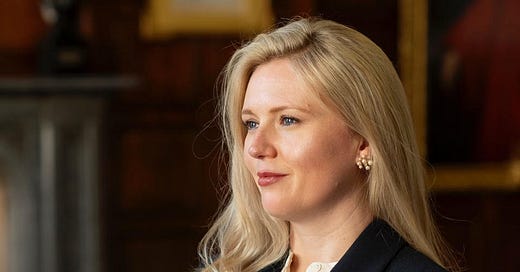Proudman fights on
Judge rules that barrister can allege discrimination at full disciplinary hearing
A feminist barrister facing disciplinary proceedings has failed to persuade a tribunal that charges against her should be thrown out as an abuse of process. But the barristers’ regulator was unsuccessful in arguing that the tribunal had no power to consider her claim that it had violated her human rights.
Lawyers for Charlotte Proudman told a directions …
Keep reading with a 7-day free trial
Subscribe to A Lawyer Writes to keep reading this post and get 7 days of free access to the full post archives.



